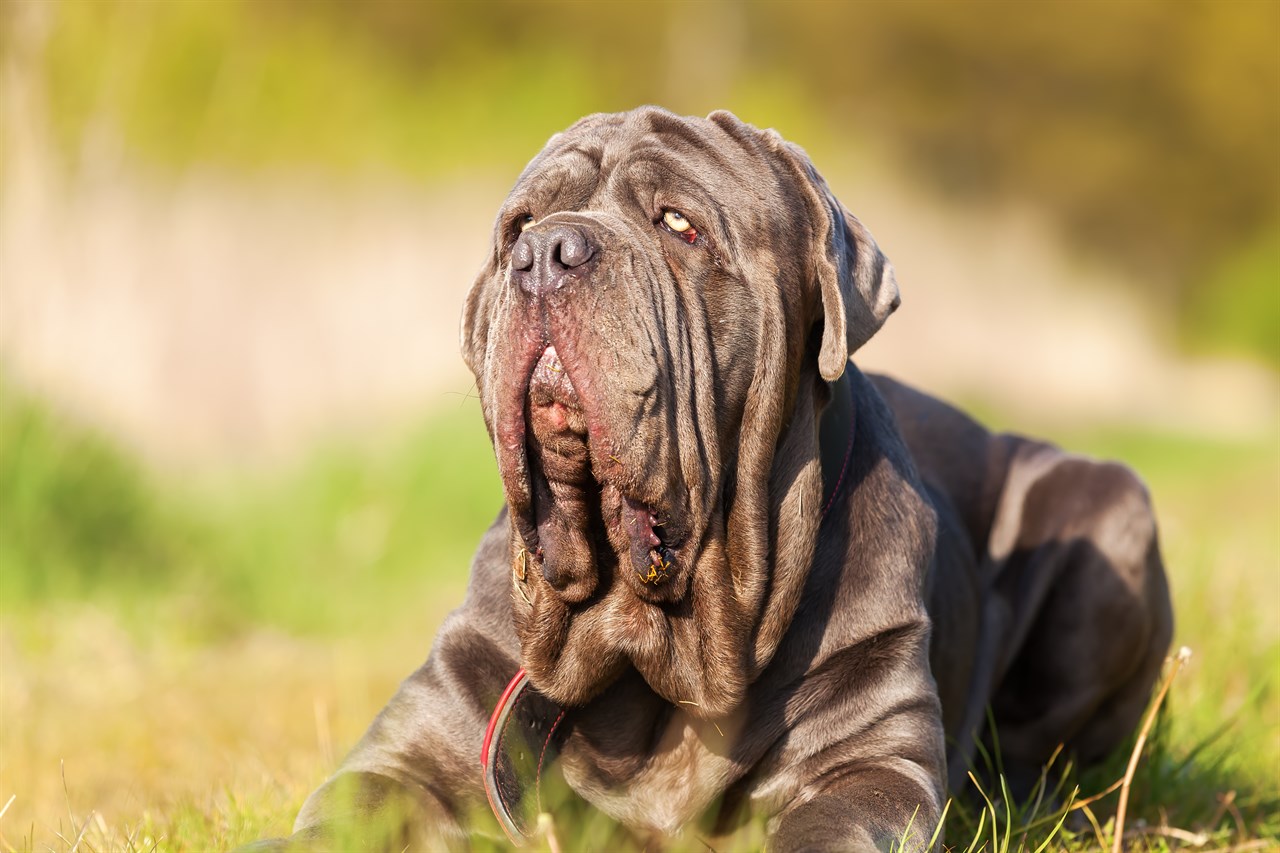Feeding Habits and Food Requirements of the Neapolitan Mastiff

Proper nutrition is crucial for the overall health and well-being of Neapolitan Mastiffs. These large and muscular dogs have specific feeding habits and dietary requirements that should be carefully considered to ensure they receive the nutrients they need to thrive. Here, we'll delve into the feeding habits and food requirements of the Neapolitan Mastiff.
Feeding Frequency
Neapolitan Mastiffs, like many large and giant breeds, have a slower metabolism compared to smaller dogs. As a result, they don't require as many calories, and their feeding frequency may differ from that of smaller breeds. Typically, Neos do well with two meals per day, one in the morning and one in the evening. Splitting their daily food intake into two meals helps prevent bloating, a condition more common in deep-chested breeds.
Portion Control
Controlling portion size is crucial for Neapolitan Mastiffs, as overfeeding can lead to obesity and related health issues. Consult with your veterinarian to determine the appropriate portion size based on your dog's age, weight, activity level, and specific nutritional needs.
High-Quality Dog Food
Choose a high-quality commercial dog food that is formulated for large or giant breed dogs. Look for options that list meat as the primary ingredient and avoid foods with excessive fillers, artificial additives, or by-products. A balanced diet is essential for maintaining your Neapolitan Mastiff's health.
Protein and Fat Content
Neapolitan Mastiffs benefit from a diet that has a moderate protein content, typically around 20-25%. Fat content should also be moderate, between 10-15%. These levels provide sufficient energy for their large size and muscle mass without contributing to excessive weight gain.
Joint Support
Large and giant breeds like the Neapolitan Mastiff are more susceptible to joint issues, such as hip and elbow dysplasia. Consider foods formulated with joint-supporting ingredients like glucosamine and chondroitin sulfate to help maintain joint health.
Slow Growth for Puppies
Neapolitan Mastiff puppies grow rapidly, but it's essential to ensure that this growth is slow and controlled to reduce the risk of skeletal problems. Feed them a puppy-specific large breed formula designed to support controlled growth. Avoid overfeeding or supplementing with excessive calcium, as this can lead to developmental issues.
Fresh Water
Provide your Neapolitan Mastiff with access to fresh, clean water at all times. Staying well-hydrated is vital for their overall health and helps prevent urinary issues.
Special Dietary Considerations
Neapolitan Mastiffs may have specific dietary considerations or allergies. If your dog has food sensitivities or allergies, work closely with your veterinarian to select an appropriate diet and avoid triggering ingredients.
Weight Management
Regularly monitor your Neapolitan Mastiff's weight and body condition. Adjust their portion sizes and activity levels as needed to maintain a healthy weight. Obesity can lead to a range of health problems and should be avoided.
Feeding your Neapolitan Mastiff a well-balanced diet that meets their specific nutritional requirements is essential for their health and longevity. Consult with your veterinarian to create a feeding plan tailored to your dog's individual needs. By providing the right nutrition and monitoring their weight and overall health, you can ensure that your Neapolitan Mastiff remains healthy, happy, and well-fed throughout their life.
Neapolitan Mastiff puppies for sale
- Find Neapolitan Mastiff puppies for sale in ACT
- Find Neapolitan Mastiff puppies for sale in NSW
- Find Neapolitan Mastiff puppies for sale in NT
- Find Neapolitan Mastiff puppies for sale in QLD
- Find Neapolitan Mastiff puppies for sale in SA
- Find Neapolitan Mastiff puppies for sale in TAS
- Find Neapolitan Mastiff puppies for sale in VIC
- Find Neapolitan Mastiff puppies for sale in WA